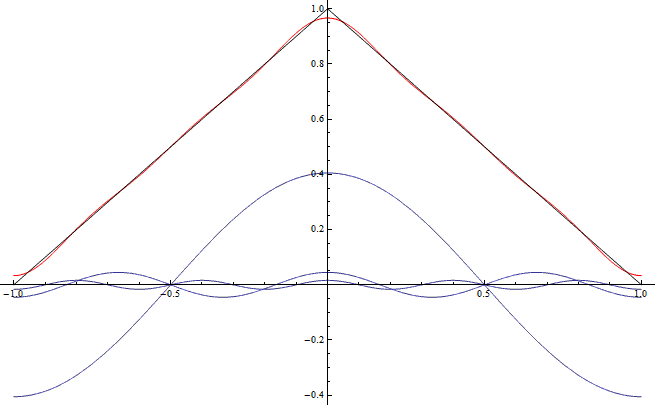One of the most famous features of the Basic Law is its eternity clause in article 79 (official translation, emphasis mine):
Article 79
(1) This Basic Law may be amended only by a law expressly amending or supplementing its text. In the case of an international treaty regarding a peace settlement, the preparation of a peace settlement, or the phasing out of an occupation regime, or designed to promote the defence of the Federal Republic, it shall be sufficient, for the purpose of making clear that the provisions of this Basic Law do not preclude the conclusion and entry into force of the treaty, to add language to the Basic Law that merely makes this clarification.
(2) Any such law shall be carried by two thirds of the Members of the Bundestag and two thirds of the votes of the Bundesrat.
(3) Amendments to this Basic Law affecting the division of the Federation into Länder, their participation on principle in the legislative process, or the principles laid down in Articles 1 and 20 shall be inadmissible.
Länder is the German word for states. Article 1 declares human dignity inviolable and introduces the fundamental rights, clarifying that they are actual law rather than declarations of intent. Article declares The Federal Republic of Germany a “democratic and social federal state” and protects popular sovereignty, the separation of powers, and the rule of law. It also contains a right to resistance against people trying to overthrow the constitutional order, but since that is a later amendment it is disputed whether that right is covered by the eternity clause.
So some principles are simply not subject to amendment. Most legal scholars think this would apply even if we got a new constitution under article 146.
I understand the idea behind this guarantee. The framers remembered freedom abolishing itself in 1933 and this never should be an option again. But this ignores that laws don’t apply themselves. In practice this guarantee must be interpreted and that gives the Federal Constitutional Court judicial review of constitutional amendments. I don’t think this is much of a protection against a new Machtergreifung. A majority sufficient to amend the constitution is also sufficient to stack the court. But in normal times it gives the Federal Constitutional Court a tool for striking down even constitutional amendments. Now most Germans don’t worry about judicial usurpation, but I do. The idea that a council invested with significant political power would become apolitical just by being called a court is absurd. And in fact the framers would be very surprised about some principles the court found in their work during the past 50 years. The words “Freedom of the press and freedom of reporting by means of broadcasts and films shall be guaranteed.”, for example, “mean” that the state must run “independent” television channels but not newspapers.
Some judicial review is worthwhile. Without it the political process would just ignore all fundamental rights. But we should never forget that it is effectively the rule of people just as fallible as those in the legislature. And if evil laws are unavoidable, as they are, then I prefer evil laws coming out of the democratic process. On balance I feel judicial review is worthwhile if the people can amend the constitution by a simple majority in a referendum, thus overriding those judicial excesses they actually care about. The German requirement of a 2/3 majority in the Bundestag and the Bundesrat is already making it too hard for my taste. And as hard as it is to amend the American federal constitution, Americans have no reason to be surprised their constitution was effectively replaced by case law only symbolically related to its text. The German eternity clause is the far end of that continuum. So far it has never been applied, but if the court ever gets into that habit it will be the end of the values it was meant to protect, leaving us with a council ruling without any way of overriding it through the democratic process. So the eternity clause is a very bad idea.
While we’re talking about judicial review, the Basic Law introduced a useful procedural rule copied by most later constitutions:
Article 100
(1) If a court concludes that a law on whose validity its decision depends is unconstitutional, the proceedings shall be stayed, and a decision shall be obtained from the Land court with jurisdiction over constitutional disputes where the constitution of a Land is held to be violated, or from the Federal Constitutional Court where this Basic Law is held to be violated. This provision shall also apply where the Basic Law is held to be violated by Land law and where a Land law is held to be incompatible with a federal law.
(2) If, in the course of litigation, doubt exists whether a rule of international law is an integral part of federal law and whether it directly creates rights and duties for the individual (Article 25), the court shall obtain a decision from the Federal Constitutional Court.
(3) If the constitutional court of a Land, in interpreting this Basic Law, proposes to deviate from a decision of the Federal Constitutional Court or of the constitutional court of another Land, it shall obtain a decision from the Federal Constitutional Court.
“Land” is German for what I translated as “state”. So basically every constitution is interpreted by only one court and any other court thinking a law unconstitutional must refer it to the court interpreting the constitution. In hindsight that rule is a no-brainer. If every court can strike down laws, those decisions will be appealed to the highest court anyway. The only thing lost by sending such matters up directly is the ability of individual judges nobody ever heard of going berserk.
